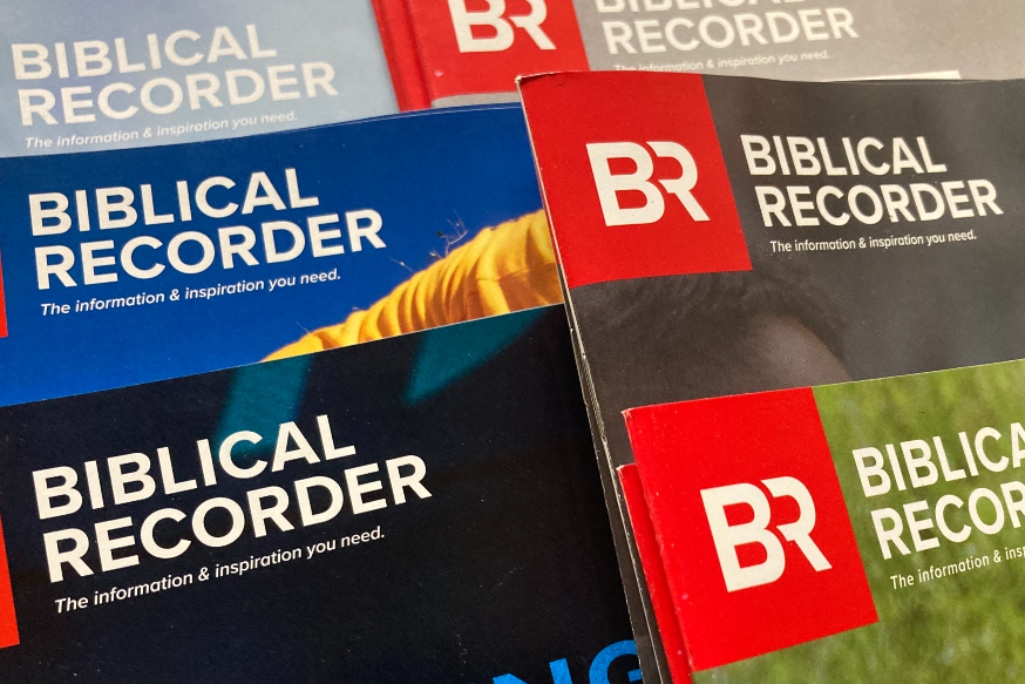Why did Jesus come to this earth? He did not leave this
question unanswered. In Luke 19:10
he said, “for the Son of Man has come to seek and to save that which was lost.”
His purpose was simple: provide the way of salvation to redeem lost mankind. As
Paul discipled young Timothy, he recognized Jesus’ purpose when he said, “This
is a faithful saying and worthy of all acceptance, that Christ Jesus came into
the world to save sinners, of whom I am chief” (1 Tim. 1:15).
We preach that Jesus is the only way to heaven. Jesus said
that about Himself in John 14:6. Baptists believe it to be true. But do our
lives demonstrate the urgency of telling the world about Him? At least 3,800
people groups in the world have not yet heard His name. They do not know that
the grace of God has come to man in the person of Jesus Christ.
If we are completely convinced of the death, burial and
resurrection of Jesus Christ, we will passionately accept our assignment to
proclaim His gospel. Did Jesus leave us with a more primary responsibility? Undeniably,
the last command Jesus left His followers is still in force. We can read it in
Acts 1:8 or Matthew 28:18-20. It is simple and clear.
God has given us an assignment. We call it the Great
Commission. It is not a shelf piece to admire and discuss. It is an assignment.
We like to make it merely a topic of conversation. We get together every Lord’s
Day to talk a little bit about the Great Commission and a whole lot about
ourselves.
Are we called to oil the machinery of our local churches
just enough to barely keep our doors open so we will have a place to go on
Sunday? Is our primary task to maintain the “traditions of our elders” without
filling the baptistry? Are we satisfied with merely serving as chaplains to one
another? Where are the changed lives? Where are the newly redeemed believers?
Baptists like to talk about being “mission-minded” or
“missional.” But, how much of that talk is being translated into planting new
churches, increasing our mission dollars or sending more missionaries to the ends
of the earth? How much of our talk is fleshed out through volunteers getting
out of our comfortable pews to travel overseas?
Southern Baptists should not be satisfied until the God of
heaven sees His children passionately proclaiming His Son within our community
and to the ends of the earth. We cannot be content to use our resources to
improve our standard of living while knowing that billions will spend eternity
in hell because they never heard the name of Jesus.
Try this one Sunday in your church. Measure the conversation
in your Sunday School/Bible Study group or worship service. How much of it is
about “us,” and how much of it is about our real purpose as believers? Do we
pray for each other to feel better or are we calling on our merciful God to change
the hearts of lost people? Are we discussing how we can live “happily” or are
we asking how we can live more sacrificially in order to proclaim the Savior to
the world? Is our discussion centered on finding ways to remove uncomfortable
roadblocks in our lives or searching for ways to abandon self-satisfaction?
Where is the gospel in all of our talk?
Let’s put our assignment in perspective. We don’t exist for
the sake of building institutions, whether they be denominations, seminaries,
colleges or newspapers like this one. We exist for the glory of God and for the
sake of His Son, Jesus Christ. Our calling is not to prop up organizations or
keep machinery oiled. It is to proclaim salvation through Jesus Christ alone to
a world who does not know His love and grace.
God gets glory when the people of the world learn of His
great love for them. He is glorified when lost mankind discovers that God’s
love is not simply a feeling, but a sacrificial act of His mercy and grace
toward all rebellious people of the world.
Of the three primary institutional structures within a
society, government, business and church, only one of those is equipped to deal
with the problem of sin. The world has many problems — war, poverty, hatred,
greed, sickness — all of which have their roots in the universal problem of
sin.
Governments throw money at problems. It does not work.
Governments attempt to control the sin problem through legal enforcement. While
we respect the value of law enforcement and recognize its place in social order,
it does not deal with the root problem of sin.
Business hopes that producing the right products and
creating jobs will lift societies and individuals above the consequences of
sin. New inventions have not eliminated poverty. The development of more weapons
has not eliminated war. Sickness and disease are still with us in spite of
phenomenal medical advancements in the world of research. The wealth
accumulated by legitimate, successful businesses has not addressed the problem
because business is not equipped to handle the problem of sin.
But, God has given the world the gift of the New Testament
church. He has given Jesus to the church as our savior, redeemer and head.
Jesus is the answer to the sin problem. His sacrificial death on the cross for
the sin of man addresses the problems faced by every society and every
individual in the world.
God calls us to abandon the misguided priority of personal
comfort. Comfort is a safe place. It is a place of pleasure. But it is not
where God is working. Baptists must be alert to the tragic danger of comfort.
It is destructively self-perpetuating. It is the place of no progress.
Ultimately, it is the place of utter failure. If this is where we are, we need
a strategy to climb out of that pit.
We are called to abandon the subjective feelings of comfort,
not the objective standards of biblical truth. Are we deceiving ourselves by
believing the work of the Great Commission will be done without serious
obedience? We may be drowning in a sea of subjectivity, with little objective
commitment to obeying Jesus’ command to take the gospel to every living
creature.
The Great Commission is never accomplished accidentally. We
will never wake up one day and discover that we have unintentionally proclaimed
the gospel to the world. As Southern Baptists and North Carolina Baptists
develop strategies to reach the nations, every local church needs to do the
same. After all, it is the local church’s assignment.
David Platt said, “There is not one verse in the Bible where
the gospel moves forward without a person.” God uses us! We are His plan to
proclaim His salvation to every living creature. How will they know if we do
not tell them?
Whether or not we agree with last year’s Great Commission
Resurgence report, we are all confronted with the assignment Jesus left in our
trust 2,000 years ago. We have not finished the work He gave us. There is still
much to do, and it will not get done by endless discussion.
I challenge fellow Southern Baptists to be fully committed
to excellence in the matter of equipping each other to fulfill the Great
Commission and in the matter of intentionally doing whatever it takes to get
the job done. We hold those around us to high standards. We want our doctors to
be well trained and fully knowledgeable on matters of health. We expect the
cook at the restaurant to prepare tasty food, while maintaining the highest
standards of health and cleanliness. When we fly, we want to be confident that
the pilot of the aircraft is trained for every potential scenario. If we hold
others to high standards, why not hold ourselves to high standards? After all,
the work we are doing has eternal consequences.
As Christians, we are carriers of the light. We are invaders
of the darkness. We are proclaimers of the truth. We are liberators of the
captive. We are the deliverers of the living water. We are announcers of the
Good News. Individually, we can do much. But together we are unstoppable.
The Biblical Recorder is here to communicate to N.C.
Baptists about the biblical assignment that is ours. Our churches need unity of
purpose and a strong partnership in sharing the gospel. The Biblical Recorder
has this as our goal. Our job is to communicate. The more we communicate, the
better Baptists can cooperate and finish the job.
The Cooperative Program (CP), our 86-year-old system of
supporting missions and theological education, is the envy of many
denominations. But Southern Baptists don’t seem to really appreciate its value.
It is our best financial strategy for fulfilling the Great Commission. Maybe we
don’t get it.
Quincy Jones, a student at Southwestern Baptist Theological
Seminary and North American Mission Board church planter, spoke to the
convention messengers in Phoenix,
declaring, “I get it!” He said, “My wife and I grew up in an independent church
environment, where we did not understand the CP. Now we understand, and we get
it!” North Carolina Baptists, do we get it?
Frank Page, CEO of the Southern Baptist Convention Executive
Committee, has challenged us to increase our giving to missions through the CP.
“Our Cooperative Program ministries have decreased every year for many years.
We challenge you; we encourage you to raise your Cooperative Program support,”
Page said.
He pointed out that if every church increased our giving 1
percent, there would be $100 million dollars more each year to spread the
gospel through our mission agencies. That would translate into more church
plants, more missionaries and more people groups reached with the good news of
salvation through Jesus Christ. Let’s “get it!”
We
can’t afford to just say we get it. Let’s prove by our giving that we are
committed to the Great Commission and we get it.


